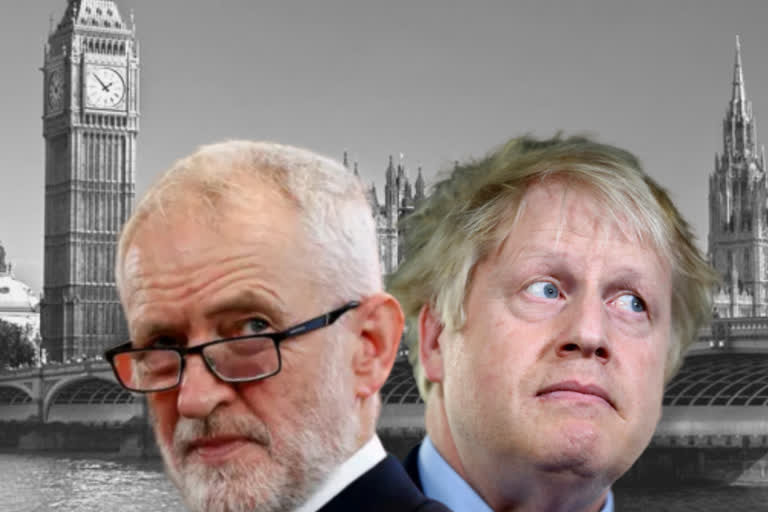London: There are just three days to go until Britons vote in an election that will determine not only who governs the UK, but when, how — or even whether — the country leaves the European Union.
As the parties scramble to secure the support of wavering and undecided voters, here's a look at some key numbers in the contest:
46 million voters: The number of eligible voters in the UK.
650: The number of seats in the House of Commons, all up for grabs in the election. Any party that wins a majority can form a government, with its leader as prime minister. If no party has a majority, it's more complicated. The biggest party could try to form a minority government, or party leaders could form a coalition or alliance to govern together.
298: The number of seats held before the election by Prime Minister Boris Johnson's ruling Conservatives — more than 20 short of a majority. The government's lack of a majority meant it struggled to pass key measures needed for Britain to leave the European Union. Johnson said that if he wins a majority he will “get Brexit done.”
243: The number of seats held by the left-of-center opposition Labour Party, which is battling to return to the office for the first time since 2010. Labour is trying to downplay Brexit and focus on its plans to spend more on health care, education and social welfare, nationalize utilities and key industries and give everyone free internet access.
53: The number of days until Britain is due to leave the EU. Brexit day was supposed to be October 31, but with Britain's politicians deadlocked, the EU granted a three-month delay until January 31.
Over 70: The number of lawmakers not running for re-election amid Britain's toxic political atmosphere. Politicians on both sides of the Brexit argument have received abuse and threats. Those leaving include many moderate pro-EU Conservatives, Labour legislators who say their party has not stamped out anti-Semitism and high-profile female legislators, who have received a disproportionate amount of abuse.
Read also: UK parties gear up for Dec 12 polls
42.8%: The portion of political parties' campaign spending that went to digital advertising during the last election in 2017 — up from just 0.3% in 2011. It's expected to be even more this time.
35: The number of seats in Parliament held by the Scottish National Party, which opposes Brexit and wants Scotland to leave the UK and become an independent country.
20: The number of seats held in Parliament by the pro-EU Liberal Democrats, who want to cancel Brexit altogether.
19.5 million pounds ($25 million): The maximum a party can spend on advertising, campaigning costs and other expenses if it contests all 650 constituencies across the UK. The spending limit is calculated at 30,000 pounds ($38,650) per seat.
9: Number of years the Conservative Party has been in power.
3: The number of smaller pro-EU parties that have joined together in a tactical voting plan: the Liberal Democrats, the Greens and the Welsh party Plaid Cymru. They have pledged not to run against each other in dozens of seats to make it more likely that pro-EU candidates will prevail.
0: The number of seats in Parliament now held by the recently formed Brexit Party, which wants to leave the EU without a divorce deal. The party, led by Nigel Farage, hopes to change that but is not running in over 300 Conservative strongholds to avoid splitting the pro-Brexit vote.
Read also: Johnson bested Corbyn in final UK election debate



